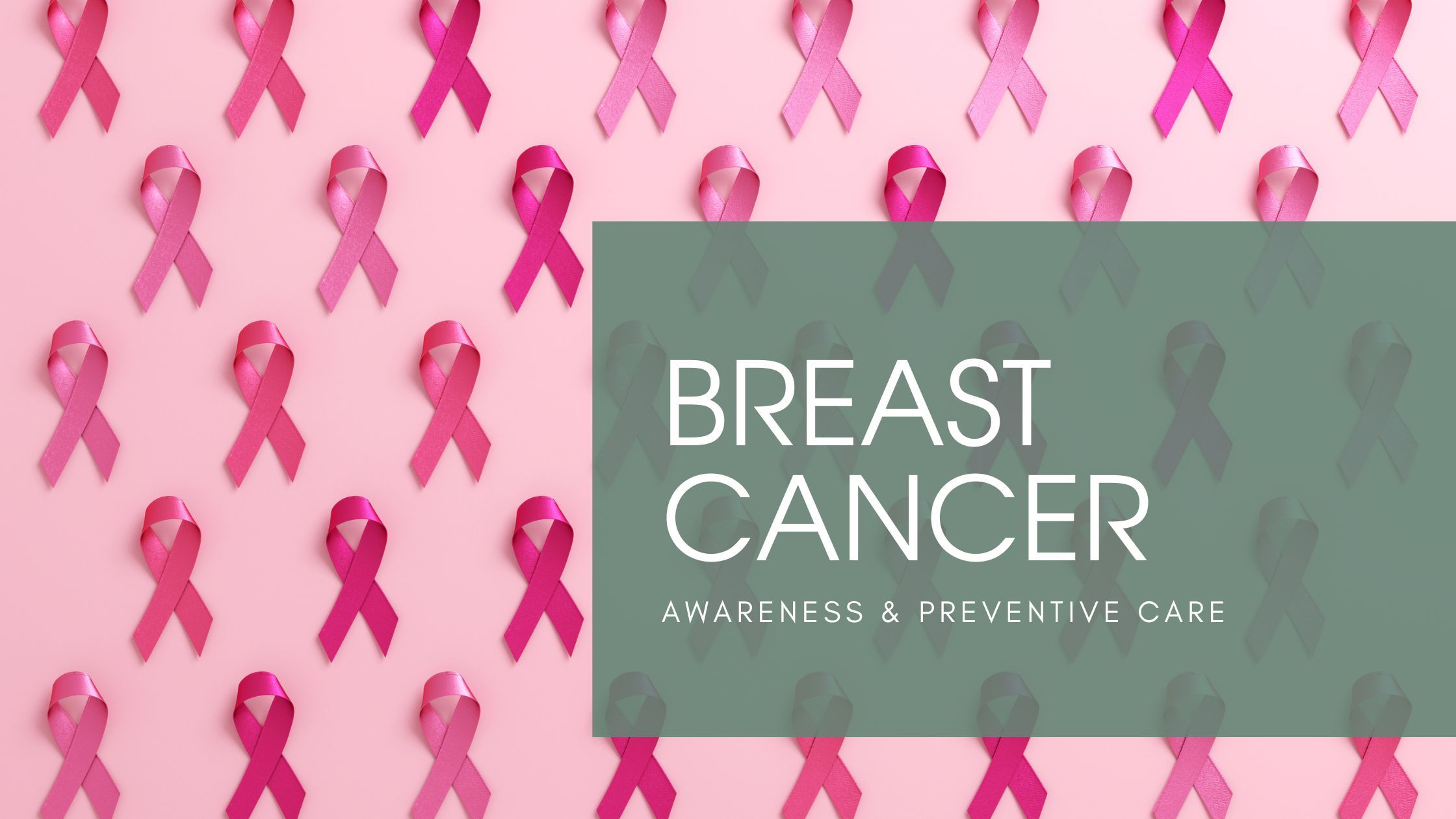
Breast Cancer Awareness & Preventive Care
Sep 24, 2025October is Breast Cancer Awareness Month, a reminder of how important it is to prioritize your health and take advantage of preventive screenings. We believe that awareness paired with action is the best way to protect your health.
Why Awareness Matters
Breast cancer is one of the most common cancers in women, but early detection significantly improves outcomes. When caught in the earliest stages, treatment is often less invasive, more effective, and survival rates are higher. Awareness isn’t just about pink ribbons it’s about taking proactive steps for your health.
When to Start Prevention
Breast cancer prevention and screening don’t look the same for every woman, but here are general guidelines:
-
Mammograms: Recommended annually starting at age 40 for women at average risk.
-
Family History: If a close family member was diagnosed early, begin screening 10 years before their age at diagnosis.
-
Self-Awareness: Women in their 20s and 30s should become familiar with their own breast tissue and report changes (lumps, skin changes, nipple discharge).
-
Clinical Breast Exam: Often recommended every 1–3 years in your 20s and 30s, and annually starting in your 40s.
At LaRocca Medical, we personalize these timelines based on your family history, genetics, and overall health.
Beyond Screening: Lifestyle & Hormones
-
Weight & Risk: Decreasing body weight by just 5–10% significantly lowers the risk of breast cancer.
-
Hormone Therapy Conversations: Every woman should discuss hormone replacement therapy (HRT) with her physician regardless of personal or family history of breast cancer. Options include vaginal estradiol cream, systemic estrogen (if no uterus), or estrogen + progesterone/progestin (if the uterus is intact).
-
This conversation is best had with a menopause practitioner a physician with advanced training in menopause and hormone health, such as Dr. LaRocca, Dr. Solaiman, OBGYNs, urologists, or internal medicine physicians.
-
No physician receives formal menopause training in medical school this expertise is pursued separately, making it especially important to seek out a provider who stays up to date on the latest evidence.
-
Key Points on Screening
-
Screening can help find breast cancer early, when it is easier to treat.
-
The U.S. Preventive Services Task Force recommends mammograms every 2 years for women 40–74 at average risk, but many specialists including us recommend annual mammograms starting at age 40.
-
Screening decisions should be made through informed and shared decision-making with your provider.
The Tyrer-Cuzick (IBIS) Score
Every year when you get your mammogram, your Tyrer-Cuzick (TC) score should also be calculated. This tool estimates your lifetime risk of developing breast cancer.
-
You can calculate your own score here: Tyrer-Cuzick (IBIS) Model (you’ll need your family history + mammogram report).
-
Results:
-
< 15% → Average risk
-
15–20% → Intermediate risk
-
> 20% → High risk (annual MRI with IV contrast is recommended in addition to a mammogram).
-
If you fall into the intermediate zone, shared decision-making with your provider is essential. MRI can detect more cancers but may also lead to unnecessary biopsies and added anxiety. We often recommend MRI in this range, but ultimately it’s a personal choice.
Note: The Tyrer-Cuzick model does not apply to women with a history of breast cancer.
The TC score factors include:
-
Age, weight, height
-
Breast density
-
Age at first menstrual period
-
Gravida/Para (pregnancy history)
-
Age at first live birth
-
Menopause status and last menstrual period
-
Prior hormone therapy use
-
BRCA1 or BRCA2 gene mutation
-
History of ovarian cancer
-
History and results of breast biopsies
-
Family history of breast or ovarian cancer, including age at diagnosis, unilateral vs. bilateral disease, and BRCA testing
Benefits and Risks of Screening
Benefits:
-
Detects cancer early, when treatment is most effective.
-
Lowers the risk of dying from breast cancer.
Risks:
-
False positives: Extra testing for findings that aren’t cancer.
-
Over diagnosis & over treatment: Detecting cancers that may never cause problems, leading to unnecessary procedures.
-
Discomfort & radiation: Mild but present.
-
False negatives: Some cancers may be missed.
What You Can Do Now
-
Know Your Risk: Discuss family history and TC score with your provider.
-
Get Screened: Mammograms annually starting at 40 (or earlier if higher risk).
-
Make Lifestyle Changes: Even modest weight loss can reduce risk.
-
Talk Hormones: Have an informed conversation about HRT with a menopause-trained provider.
Our Approach
At LaRocca Medical, we look at the whole person. Preventive care isn’t just about checking a box it’s about combining imaging, labs, lifestyle, and your unique story to create a personalized health plan.
Next step: If you’re due for your breast cancer screening or preventive care visit, this is the perfect time to schedule it.
